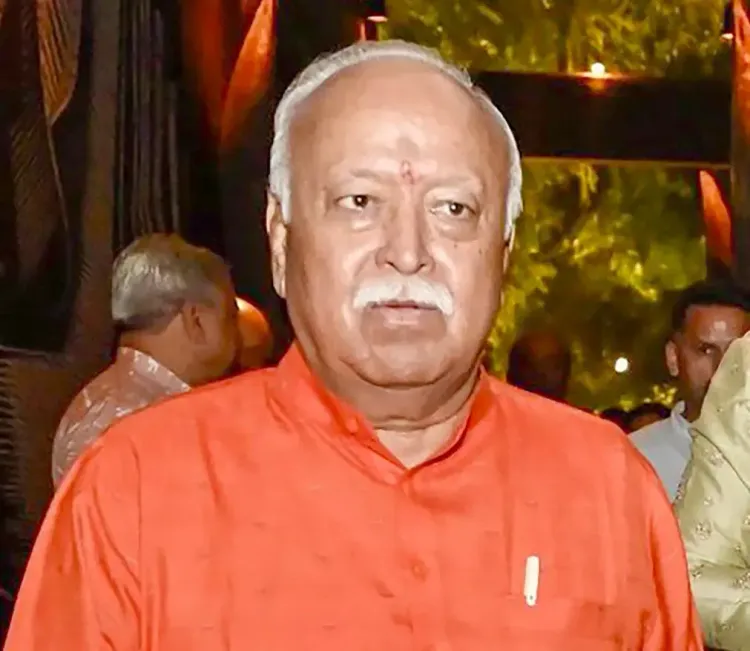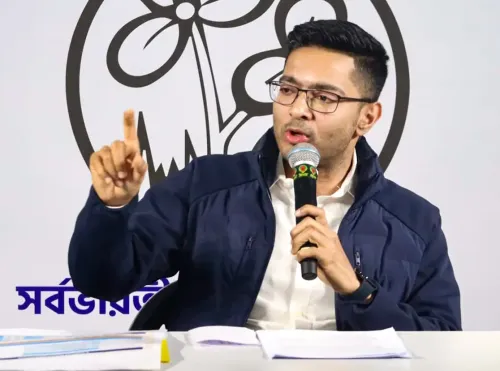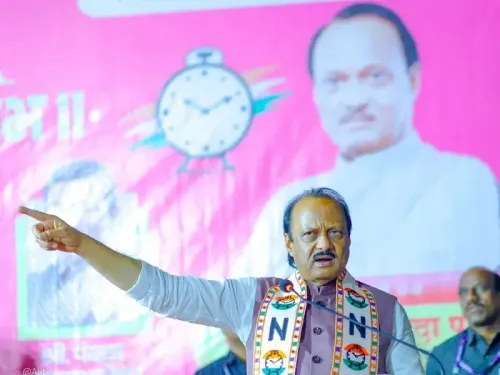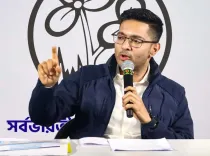Is Mohan Bhagwat’s Tenure the Most Consequential?

Synopsis
Key Takeaways
- Mohan Bhagwat's leadership has been transformative for the RSS.
- He has achieved unprecedented ideological and societal consolidation.
- Bhagwat has expanded the RSS's presence in civil society and media.
- His tenure aligns with the RSS's long-term cultural objectives.
- The organization is poised for significant growth as it nears its centenary.
New Delhi, Sep 11 (NationPress) Prime Minister Narendra Modi celebrated the 75th birthday of Rashtriya Swayamsevak Sangh (RSS) chief Mohan Bhagwat, describing his time in leadership as the “most transformative period in the century-long journey of the Sangh.”
Modi’s remarks were echoed by numerous thinkers and commentators, including Akhilesh Mishra, CEO of a policy think tank, who emphasized how Bhagwat’s stewardship distinguishes itself from prior leaders.
Mishra elaborated on the Sangh’s progression, stating in a post on X that founder K.B. Hedgewar (1925-1940) established the organization on a small scale, while his successor Guru M.S. Golwalkar (1940-1973) provided ideological coherence and a long-term vision, albeit in contrast to the Nehruvian consensus. Following him, Balasaheb Deoras (1973-1994) broadened outreach, especially during and after the Emergency, and Rajendra Singh (1994-2000) adeptly handled the tumultuous 1990s characterized by rapid societal changes.
K.S. Sudarshan (2000-2009) guided the Sangh through a time of intensified media scrutiny and the rise of private television networks.
However, Mishra contended that it is under Bhagwat (2009-present) that the RSS has attained a remarkable convergence of “ideological consolidation, sustained state power, mass expansion, societal mainstreaming, civilizational awakening, intellectual articulation, and media acceptance.” These accomplishments have not been simultaneously achieved by any previous Sarsanghchalak.
“Mohan ji's tenure is undeniably the most consequential. It has revitalized the only institutional framework that Hindus have managed to build in over a thousand years,” he remarked.
Under Bhagwat’s guidance, the RSS has broadened its presence across civil society, academia, and public discourse, gaining greater acceptance in both traditional and digital media.
Experts note that this era has also aligned with the Sangh Parivar’s connection to enduring state power, facilitating many of its long-term social and cultural goals to become part of the national narrative.
As the RSS approaches its centennial in 2025, Bhagwat’s leadership, as noted by both the Prime Minister and ideologues, is set to be remembered as the most significant chapter in the organization’s history.










